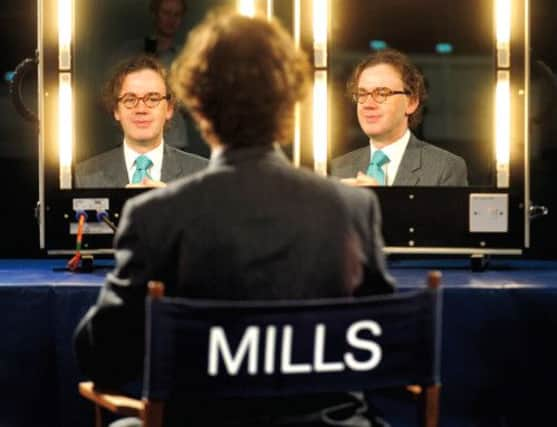Scottish independence productions not at EIF 2014


Sir Jonathan Mills told Scotland on Sunday that he had decided to sidestep politics and would not be commissioning any work about the independence debate for the 2014 festival, which takes place in the final weeks of campaigning before Scots go to the polls on 18 September.
Instead, the outgoing director will use the 100th anniversary of the First World War and the Glasgow Commonwealth Games as inspirations for his farewell programme.
Advertisement
Hide Ad“There’s no way of me, as a British and Australian citizen, predicting or having the requisite feel for what might happen in the independence referendum,” said Mills. “More than that, I’ve had to start to put in place plans for next year’s festival before the date of the referendum was even set. My planning hasn’t coincided or been influenced by that event. I’m not anticipating anything in the programme at all.”
Mills suggested that the Fringe was better placed to address the issues in the febrile atmosphere whipped up by the independence referendum.
“The Fringe is a different kind of festival,” he said. “Fringe performers can react with much more ease to recent events than we can.
“We would not wish our festival to be anything other than it has always been, which is a politically neutral space for artists. It is important that it remains that.”
Mills’ approach is in stark contrast to that of Nick Barley, the director of the Edinburgh International Book Festival, who said last week that the literary event had an “absolutely crucial” role to play in the debate surrounding the country’s future.
By steering clear of politically motivated productions, Mills will avoid a repeat of the controversy stirred up three years ago over the National Theatre of Scotland drama Caledonia, which was partly inspired by the modern-day banking crisis and Scottish nationalism.
Advertisement
Hide AdThe large-scale production, which received £200,000 from the Scottish Government, told the story of William Paterson’s ill-fated attempt to set up a Scottish colony at Darien in Panama.
Although it was a commercial success, it attracted vitriolic criticism and, unlike most NTS shows, has never been staged again. The Guardian’s theatre critic said it “leaves the heart untouched” while Charles Spencer of the Telegraph called it “a dreary piece of political agit-prop … a punishing night of Brechtian parable theatre with a hard-left agenda”.
Advertisement
Hide AdVicky Featherstone, the former artistic director of NTS, said it was the one production during her time in the post that was perceived as a failure.
The experience has not deterred NTS from announcing plans for another two productions inspired by the referendum debate – Rantin and The Great Don’t Know Show – however, it is not yet known if either will be staged in Edinburgh during next summer’s festivals season.
Mills said he was entirely responsible for next year’s EIF programme, despite his successor, Irishman Fergus Linehan, being appointed in April this year.
Linehan, who does not take over from Mills until October 2014, is already working on the 2015 and 2016 festivals.
Looking ahead to next year, Mills said: “The closing ceremony of the Commonwealth Games is 3 August, the following day is the big commemoration for the centenary of the First World War, when Britain entered the war, and we start the festival later that week. It would be very natural for me to engage with at least some of the major Commonwealth countries in the programme that I am developing. “I can’t say any more about this at the moment, but we will be announcing more in the autumn.”
The EIF has a budget of around £10 million – half of which comes from the public purse.
Advertisement
Hide AdMills said that although the festival has effectively been on “standstill funding” for the past four years, the relationship with its funders – the city council, Creative Scotland and the Scottish Government – is much closer and clearer than when he took over the event in 2006.
He said: “We always have big ambitions for the festival. We sit down after we have identified them and start to work out how we can pay for them.
“We don’t start with what we can afford, we start with what we want to do. If you start with what you can afford, you are not aiming high, or in the right direction.”